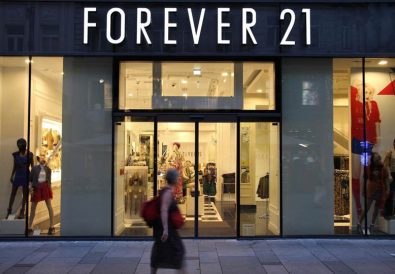By Anne T. Donahue
This week at the MET Gala, we were all treated to exactly what we’ve come to expect: lots of fancy beautiful people wearing fancy beautiful gowns (and capes and slacks and, and, and). Also, Kim Kardashian cinched her waist to the point of looking like a Disney princess from the animated movies, adding to the discourse that’s come to define one of the biggest trends of 2024: thinness.
To be clear, this isn’t about policing anybody’s bodies, nor is it about villainizing Kim Kardashian. Kim can do what she wants and frankly, so can everybody else. I don’t know who’s dieting or on any weight-loss drugs or eating what or not eating whatever, nor how many pairs of Skims are required to achieve a tiny, tiny waist. That’s not my business. What is? How exactly are we approaching discourse regarding body shape/size/type in 2024?
Yesterday, The Cut writer Samhita Mukhopadhyay wrote a beyond-solid piece about what now seems like the culture’s very fleeting relationship with body positivity. (Go read it, she’s excellent, I’ll wait.) As you may or may not recall, once upon a time, for a few years, we seemed to be edging out from under the umbrella of thinness as the gold standard for being. Self-love messages celebrated uniqueness and embracing one’s body type, and bevies of brands stepped up to proudly begin expanding their size range. Obviously, there were still miles to go, but it was a start. And then the dynamic shifted again, the Y2K vibes were resurrected, and any celebrity who’d lost some weight was heralded by the media as looking amazing. It’s hard to feel hopeful for lasting change – at least in the mainstream.
The thing is, there are reasons to doubt the staying power of “look how skinny [so-and-so]’s waist is!” and the conversations that seep into the way we process our own selves. To start, we’re already seeing pushback from generations Z and Alpha who recognize the way in which their predecessors (millennials especially — hi) bowed to capitalist, racist, and sexist norms and have responded by actively fighting to dismantle them. But that also means we can’t leave them to fight the good fight alone. When I think about the way I perceive my own self and the way I process the weight I’ve put on since 2020, I know it’s on me not to dwell on it or talk about myself in a way that equates size to anything of value. First, because it really doesn’t matter. And second, because while I may not be able to control the culture’s fixation on thinness, I can work on controlling my language around it.
I think that’s what makes me so bummed out about the way we still talk about the way celebrities look at red carpet events, or about why so-and-so looks better now that they’re smaller, or even about why Kim K made her waist a focal point to play to a theme about gardens. It’s tired and it’s boring and we’ve been having these conversations for decades and decades – we know in our cores that sizeism and fatphobia can go to hell, but we also know we exist in a world in which there’s still money to be made off the little voices telling us we’re not doing enough to look like rich famous people.
I would love to offer a concrete solution to any of this but that would be delusional, so instead I’m going to try and chip away at my neuroses piece by piece. I’m going to buy sizes that fit me instead of sizes that I used to wear. I’m going to eat what I’m hungry for. I’m going to stop following up any compliments with an explainer that I put weight on during the pandemic. I’m going to embrace my potato face – which I say with pride, as an Irish-Lithuanian potato-eater – and the cheeks that take after nana’s. I’m going to stop saying things like “Have you lost weight?!” to anybody ever, as if it’s any of my business. I’m going to wear clothes that make me feel strong and powerful instead of pieces that are “flattering.” I’m going to remind myself on days where I’m comparing myself to everybody else that my body’s actually just the cool thing carrying around my brain and heart and self, and as long as it’s running okay then I’m doing amazing. It all feels trivial, but it’s the little things that sent us all into weight-conscious cultural-scape to begin with, so why couldn’t they be what begins to reverse the norms? Or, at the very least, our own normal and our relationship to that and ourselves.
Need a little more Anne? Read more from Anne T. Donahue right here!











